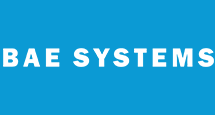Visiongain Publishes Biologics Market Report 2020-2030
06 August 2020
Visiongain has launched a new report Biologics Market Report 2020-2030: Forecast by Product Type (Monoclonal Antibodies (Humira, Remicide, Tysabri, Herceptin, Kadcyla, Perjeta, Opdivo, Keytruda, Avastin), Vaccines, Protein Therapeutics (Insulin, Other Recombinant Hormones, Plasma & Recombinant Coagulation Factors, Interferons, Enzyme Replacement & Other Protein Therapies), Regenerative Medicines (Stem Cell Therapy, Tissue Engineered Products, Gene Therapies), Fusion Proteins), by Application (Oncology, Autoimmune Diseases, Infectious Diseases, Cardiovascular Disorders, Haematological Disorders, Others), by Manufacturing (Outsourced, In-house), and Geography (North America, Europe, Asia Pacific, Latin America, Middle East and Africa) PLUS Profiles of Leading Biologics Companies and COVID-19 Impact Scenarios.
The global biologics market is anticipated to reach US$ xx million in 2030 from its previous value of US$ xx million in 2020. The overall growth rate for the forecast period 2020 to 2030 is predicted to be xx%. Over the years, the global biologics market has increased and estimates are made that in the next five years i.e. 2020-2025, the market will expand at a steady rate. The market is driven by various growth factors such as the ability to command high prices, the aging population and the rise of chronic disease, product launches, rise in prevalence of chronic diseases, strong and pipeline of biologics drugs. Further, the application of biologics in complex diseases, rising demand for next-generation biologics, and pleasant policy controls are some of the opportunities that will boost the market growth. However, difficulty in manufacturing biologics and high costs in the face of declining national healthcare budgets are major factors restraining the growth of the market. Many of the industry's major challenges are risk and damage to the supply chain due to COVID-19 and biosimilars that act as both an opportunity and a threat.
Biosimilars will be changing the biologics market in the long term. But whether it does it for the better or the worse will depend on how the producers of biologics respond to their market presence. Biosimilars will help to expand the biologics market, particularly in developing nations where conventional branded biologics are luxuries most cannot be afforded. Also, they can allow many new companies to enter this space, encouraging greater competition. Existing companies would need to innovate in the face of this new rivalry, for example, by developing improved next-generation therapies. For instance, in December 2019, Mylan N.V. and Biocon Ltd. launched Ogivri, a biosimilar to Herceptin (trastuzumab). In January 2020, Pfizer announced to introduce three new oncology biosimilars in the US market.
Also, biosimilars are likely to decrease market prices as a whole. While this will reduce revenues for individual products, developers of biologics could still maintain their overall revenue by developing their biosimilars or introducing new, patent-protected therapies for many years to come. Thus, while biosimilars will cause major disruption in the biologics market, many opportunities will emerge from this disruption and it is the industry’s responsibility to take advantage of them.
Some of the major companies operating in this market are GlaxoSmithKline plc, Johnson & Johnson, Merck & Co., Novartis AG, Pfizer Inc., Sanofi S.A., Novo Nordisk A/S, Takeda Pharmaceutical, Gilead Sciences, Regeneron Pharmaceuticals, Inc., Biogen, AbbVie, and Amgen among other prominent players.
Notes for Editors
If you are interested in a more detailed overview of this report, please send an e-mail to sara.peerun@visiongain.com or call her on +44 (0) 20 7549 9987.
About Visiongain
Visiongain is one of the fastest growing and most innovative independent media companies in Europe. Based in London, UK, Visiongain produces a host of business-to-business reports focusing on the automotive, aviation, chemicals, cyber, defence, energy, food & drink, materials, packaging, pharmaceutical and utilities sectors.
Visiongain publishes reports produced by analysts who are qualified experts in their field. Visiongain has firmly established itself as the first port of call for the business professional who needs independent, high-quality, original material to rely and depend on.
















